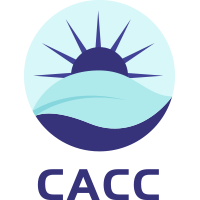
| A. Prof. Abhisarika PrajapatiSchool of Arts, Humanities & Social Sciences, REVA University, Bangalore, IndiaResearch Areas:English Literature & Language Brief introduction:I am working as an Associate Professor of English & Research Vertical Head in the School of Arts & Humanities at REVA University, Bengaluru. I obtained my M.A & PhD in English from University of Allahabad (A central University) in the year 2002 & 2009, respectively. I am passionately involved in research in the field of Humanities & Social sciences and strongly believe in the power of literature which can be instrumental in bringing a change and reforming our environment and society at large. I have published more than 55research papers in numerous reputed International, National, Scopus & Web of Science indexed journals with high impact factor. In addition to this, I also presented papers and attended more than 25 International & National conferences and seminars. My enthusiasm for knowledge was recognized, and I was invited to deliver guest lectures at the institutions of repute and was appreciated as a resource person in many webinars. For me research cannot be separated from academics and education, and I believe that a teacher in Higher Education is supposed to teach researched subjects and potential areas in education for sustainable development. I have served the UP Government for a span of 7 years. With teaching and research experience of more than 15 years, presently I am guiding research scholars of PhD program on diverse topics of human well beings and education. Two scholars have been awarded PhD degrees under my supervision. In the year 2019, I was awarded BEST RESEARCHER’s AWARD by REVA University for academic excellence and contribution in research in the field of humanities and social sciences. In the year 2020 I received Academic Excellence Award & Research Excellence Award by Institute of Scholars, Bengaluru. I hold expertise in the field of Indian Writings in English, Film Studies, and Gender Studies. Many courses such as “Camera Never Lies” from University of London and Courses on Communication, Academic writings, and Professional Conversation have been completed by her from Georgia Institute of Technology to instill and develop new pedagogy to instruct students and to prepare them for all the challenges of life. For me research is an integral part of human life so as the life of an academician. I have published one book namely Violence & British Drama with Lambert Publishing House, Germany, and another on Indian Dalit Literature with Akhand Publication & Dalit Feminism with Akhand Publication New Delhi. I am also an Associate Editor of the magazine Reflection published from Suadi Arabia. |
Prof. Guiyun GuanNorthwest Minzu University/ School of Foreign Languages, ChinaResearch areas:Education, Linguistics Speech title:On English Word Teaching from the Perspective of Cognitive Linguisitics Abstract: Words consist of sound, form, and meaning, so when learning English, one needs to know the sound, form, and meaning of a word before he/she fully understands that word. However, which part is activated first in the process of word recognition is often a hot issue in the field of cognitive linguistics. This lecture introduces some research methods of cognitive linguistics and a trial related to word recognition. In the trial, a route of processing English words was constructed, based on which an effective English word teaching method was put forward. |
|

